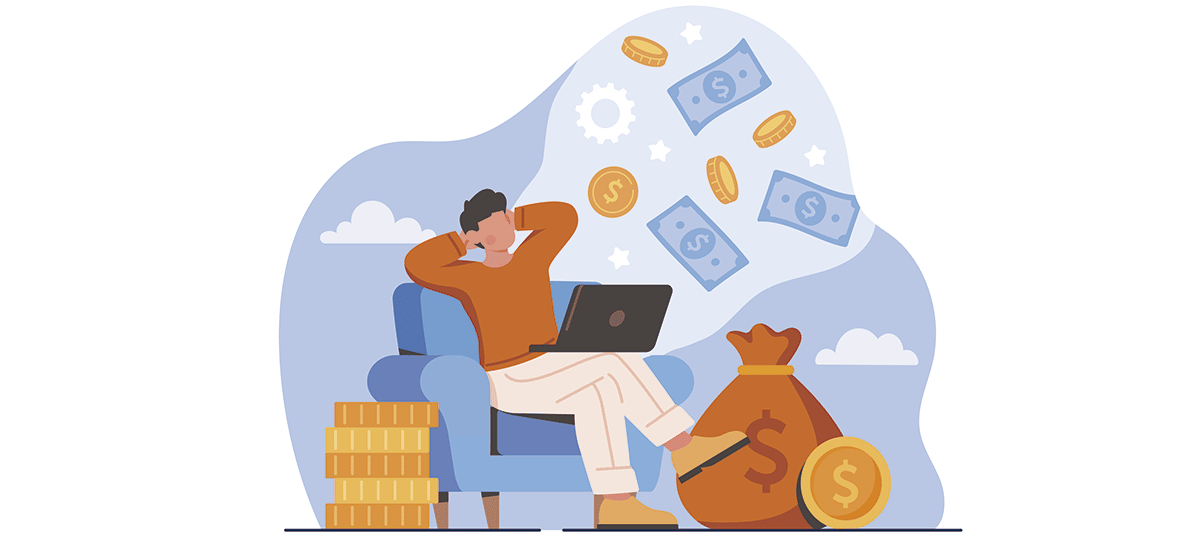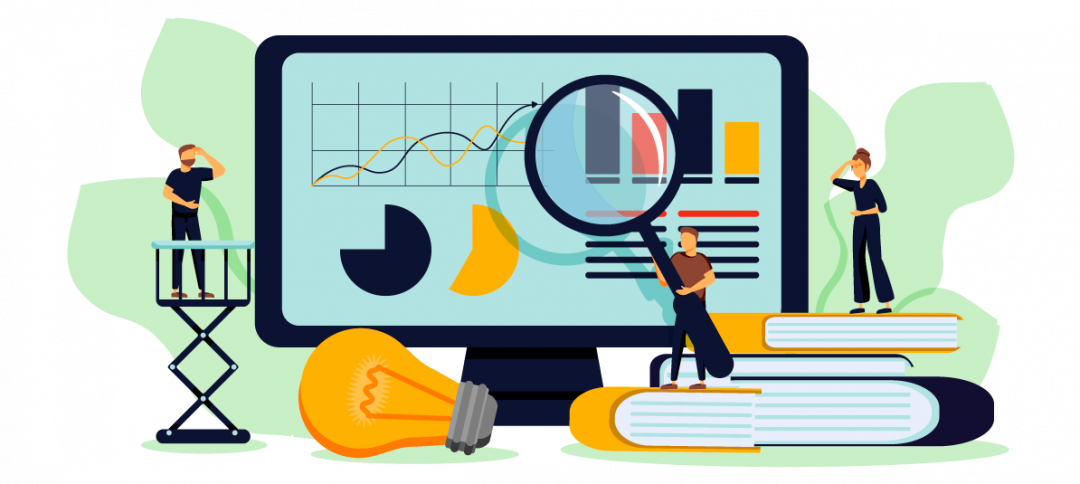Imagine. Living however you want to without having to work, or by doing the things you really like to do. That is basically what it means to live off revenue, to have a monthly income that covers your expenses without the need for a regular nine-to-five job.
This is the dream of millions of Spaniards. But is it possible? The answer is yes. In fact, the internet is full of stories of people who have done it and those who are trying to do it.
However, the fact that it is possible and conceptually simple does not mean that it is easy or straightforward. To be able to live without working, you first need to save part of your salary and then invest it.
In any case, the first step on your way will be to crunch the numbers and calculate how much money you need to live on without having to work.
How much money do you need to live off the revenue?
Calculating how much you would need to live on without needing a job is similar to calculating how much you will need when you retire.
In fact, you don’t even need mathematical formulas: you just have to figure out what your annual expenses will be, and how much you will need to maintain the lifestyle you want to lead each year.
From that point, there are a number of different ways to reach your goal, as we will see below. With some you will need more start-up money and with others you will need to build up recurring sources of income. In other words, regular revenue to cover that amount.
Before we get to that point, there is one key issue that you may not have considered. The more you need to live on, the more money you will have to accumulate or generate each month. That is why, to be able to live off the revenue, the money you earn is as important as the money you need, in other words, your expenses.
Those who are able to fine-tune that amount will have an easier time than people who are thinking about a life of luxury. Because when it comes to financial freedom, having a clear idea of how much is enough is a huge advantage.
How to live off the revenue
To live off the revenue from your assets, all you need is enough money to finance the kind of life you want to live.
There are two ways to achieve this. The first is to create different sources of passive income that allow you to receive revenue without working.
This is where options such as buying flats to rent out, investing in shares that pay dividends, or setting up a business that others run for you, come into play.
The second of these is the most traditional, and the one that probably answers the initial question. It consists of putting together a significant amount of money that you will recover or disinvest over the rest of your life. And this is why it is necessary to calculate how much you need to live on, without exhausting your wealth.
In any case, the two approaches are complementary. In fact, the ideal scenario would be to create a system that mixes the two, with income from something like renting out a flat, together with a large amount of wealth to be disinvested.
How much wealth do you need to build up to make a living from your investments?
The basic idea is that you will live off the return on your investments, no more and no less. The specific amount you will need depends mainly on the money you have saved and the return you are able to achieve.
The more money you have, the lower the return you will need to add to reach the same amount, and vice versa. From this point on, it is also important to take into account the costs of investing (the commissions you will pay along the way), and the taxes you will pay on your investments (between 19% and 26% of your return).
With this premise in mind, let’s look at a very simple and illustrative example. In this case we are not going to take inflation into account, but we are going to include the taxes that must be paid according to what you invest.
The following table summarizes how much you will need to accumulate depending on what you want to have available each year, and the return you can obtain.
| Capital available each year / Return obtained | 16,500 € | 23,000 € | 30,000 € | 40,000 € |
| 1% Return | 1,990,000 € | 2,780,000 € | 3,650,000 € | 4,850,000 € |
| 3% Return | 995,000 € | 1,390,000 € | 1,825,000 € | 2,425,000 € |
| 5% Return | 398,000 € | 556,000 € | 730,000 € | 970,000 € |
| 7% Return | 284,286 € | 397,143 € | 521,429 € | 692,857 € |
| 10% Return | 199,000 € | 278,000 € | 365,000 € | 485,000 € |
So that you understand it better, if you want 30,000 euros to live on each year, and you are able to achieve a return of 5%, if you manage to raise 730,000 euros you will have money for life.
This formula has two downsides. The first is that, if you are going to withdraw money every year, and this is going to be the money you need to live on, you are unlikely to want to risk much and, as you know, risk and return go hand in hand when investing, although time helps to smooth out this relationship.
The second is that this approach will never exhaust your capital, but you will need to raise a lot more money than if you gradually disinvest. In other words, instead of maintaining your investment, you withdraw a little money each year, so you will receive a portion of interest and a portion of the invested capital.
One way to calculate how much you can withdraw from your fund without running out of money is the 4% rule. This formula, devised by Trinity University in the United States, will help you find the safe withdrawal rate, which is the percentage of the capital that you can recover each month to make it last for up to 25 years.
The key is to enjoy the journey
Beyond the calculations on how to live on revenues and whether or not you will be able to achieve that longed-for financial freedom, the most important thing is to be able to enjoy the journey and know that just by getting started you will already be improving your financial situation.
It does not matter if you end up living on revenue, if you retire at 40, or if you have to wait longer. Just by setting that goal, you will save, invest, and build up your wealth, which will positively impact your life and reduce your financial stress.









